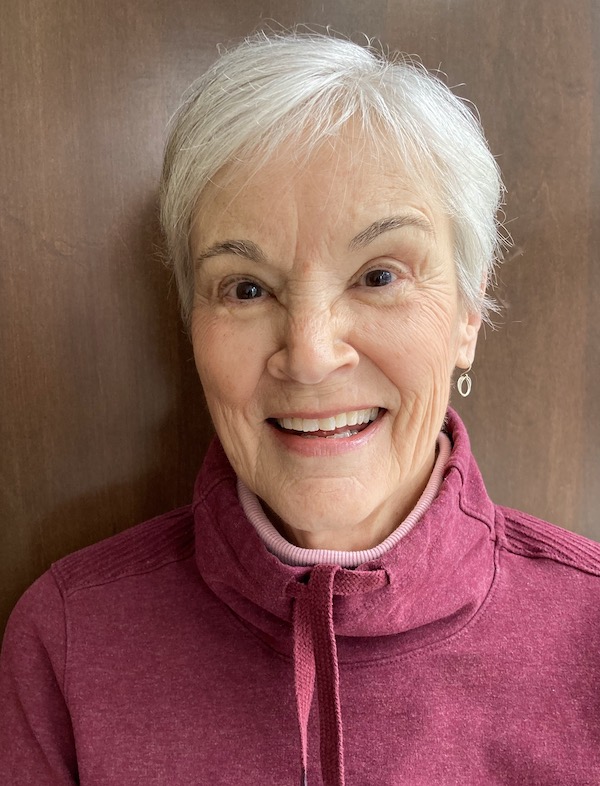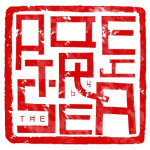Roughly True by Barbara Lydecker Crane
Suzanne Valadon, 1865-1938, Paris
What, you haven’t heard of me, despite
my art and stormy life? There’s much to tell
of pride and bitterness, of bliss and hell—
but not regret. I’ll fill my pen and write.
I was born a bastard. Maman worked,
a laundress, while I’d roam Montmartre, spying
through café and whorehouse doorways, trying
to snitch some fruit or francs. I laughed and lurked.
With lumps of coal I loved to draw on streets.
Ditching convent school at puberty,
I learned to earn my way. I felt free
in circus work, curvaceous and petite
and daring on the high trapeze, strong
until I hurt my back—I fell headlong.
That set me back, but new work came along—
also daring, deemed risqué—being painted,
a model for men. Few were sainted . . .
nor was I. I didn’t think it wrong
to give a man some pleasure and to claim
my own. For one artiste I posed unclad
and soon became his favorite lover. I had
his child, and kept my word: I didn’t name
that man on papers with a ‘Father’ line
and kept on working. Maman tended him,
my son, Maurice Utrillo—a pseudonym
so he would not be stigmatized by mine,
that of the saucy urchin shedding clothes—
and budding painter, watching men compose.
I watched the colors bloom as men composed.
Toulouse-Lautrec’s hues, both somber and bright,
would join or jar to make a mood just right.
He’d talk of wealthy clients and gallery shows
while I could study his techniques with paint.
He studied me and loved my breasts, my hair,
my thighs, my openness to him. I dared
to love that rich midget with no restraint.
When he refused to marry me, my feigned
suicide didn’t change his mind.
But what I learned while posing, I combined
with my good eye, instinctive and untrained.
I’d use my wits (and likely my libido)
to paint in oils, with honesty my credo.
I painted nude women by my credo.
When I showed Degas my work, he praised
me with, “Madame, you’re one of us!” That raised
my nerve; like those Montmartre men, I’d show
my art—although I’d wish my name need not
be printed next to ‘woman artist,’ a tag
suggesting Other like a warning flag.
I’m already Other in my lot
as Bastard-with-a-Bastard history.
Will I be known for art or just my life
of scandal? I never stayed a bougeois wife,
as two would always tangle into three;
our pacts permitting infidelity
could not prevent one partner’s jealousy.
His cryptic music vented jealousy;
Eric Satie was moody, odd, hysteric—
and amusing, in and out of bed. Eric
and Paul Mousis loved me zealously
and it was bound to chafe, our double link.
Mousis was rich; Satie holed up in one
squalid room. He slowly came undone
without me to himself—he took to drink
till drink took him. Maurice, by then eighteen,
also drank. Since he was prone to rage
and smashing things since an early age,
Maman would feed him wine to calm such scenes.
When briefly sober, it was to me he came—
I treasured hearing Maman as my name.
Of course Maurice Utrillo made his name
with me his mother-teacher and his Papa
(I tell you now) Pierre-Auguste Renoir!
Maurice was barely sane, but all the same,
prolific and successful in his art.
His painter colleague André, with brains and flair,
had tireless desire in our affair;
our turbulent trio could not live apart.
With André as our agent, income flowed—
I once took fifty children to the circus . . .
Montmartre beggars crowded round to work us . . .
we’d help out any artist friend who owed.
The stream of money later dried to drought,
but while it flowed I bloomed by giving out.
Too soon I knew my bloom was giving out—
I missed men’s wide-eyed stares, their swiveled heads.
André, still youthful, strayed to other beds;
Maurice would drink or sit around and pout.
We three unraveled into separate ways.
Instead of painting nudes I painted flowers;
they didn’t sell but brightened up the hours
of living alone, inviting in malaise,
till I found Gazi. This young, exotic man
takes care of me and listens to my stories,
roughly true—my slights, successes, glories.
I’m seventy-two. I’ll end where I began,
a bastard bitch whose art was bold and right.
My pride and grit leave little room for spite.

Barbara Lydecker Crane was a finalist for the Rattle Poetry Prize twice. She has won First Prize in the Soul-Making Keats Contest, the Helen Schaible Sonnet Contest, and the Maria Faust Sonnet Contest Humor Category. Her poems have appeared in Alabama Literary Review, First Things, Light, Measure, Mezzo Cammin, THINK, and many others. Able Muse Press recently published her fourth collection, You Will Remember Me. Also an artist, Barb lives with her husband in Somerville, Massachusetts.
Praise for the winning sonnet crown: Among a strong group of finalists, “Roughly True” distinguished itself across the board—in form, in voice, in message, in grace. After reading these seven sonnets in the voice of French painter Suzanne Valadon, I felt as if I had just taken short courses in poetic form, meter, rhyme, and art history, all expertly and candidly delivered by the fully realized persona of an accomplished, but overshadowed figure, one exquisitely resurrected here in verse.
~Dan Albergotti, Judge
